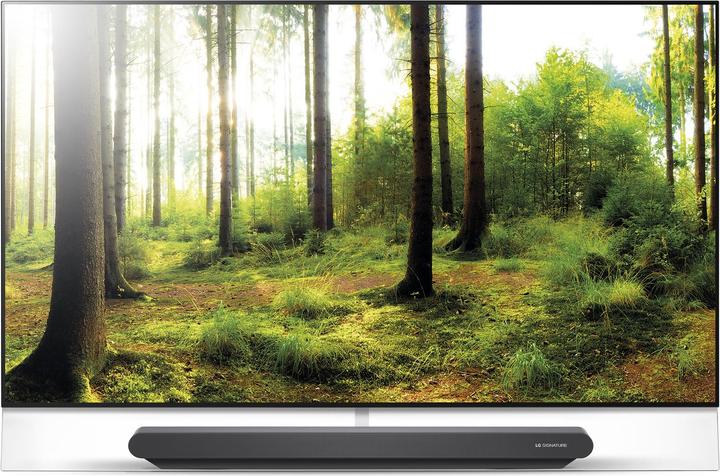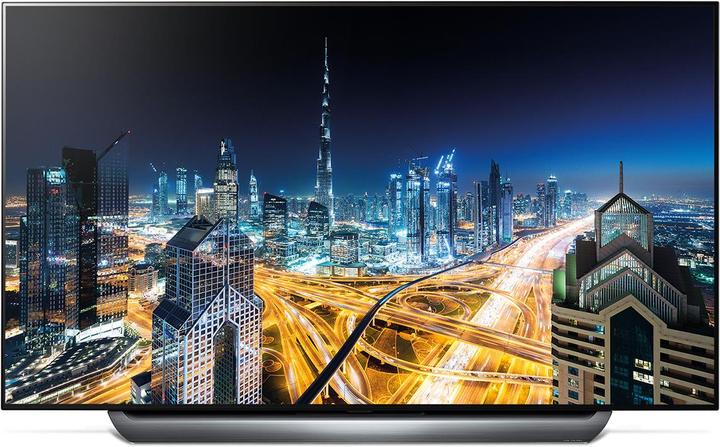

LG’s new OLED TVs hit the shelves in June – and I’ve already seen them
The new LG OLEDs feature more processing power, more pictures per second and increased intelligence. I was lucky enough to get a peek at the new line-up coming out this summer.
I had a spring in my step when I headed off to LG’s branch in Dietikon to find out what we can expect from the new OLEDs. I was pretty chuffed, as I was once quoted as saying: «OLED slays it.»
OK, so that might not be the most accurate way of putting it. I mean, just a few years ago, the screen technology we call OLED was still a pie in the sky. But now we are in that much-anticipated future and OLED TVs are taking the market by storm. Senior editor David Lee has already shone a light on that.
And now here I am visiting the branch of an OLED pioneer. This is what happened when I took a nosey around to see what they had to offer this year.
And how I managed to make a difficult decision.
Let’s cut to the chase: what even are OLEDs?
OLEDs have the advantage over LCDs in that the light diodes – also called pixels – light up themselves. They don’t need to be backlit by LEDs. In other words, when there’s black in the image, you are actually seeing black because the pixel in question switches off like a light. That in turn delivers ridiculously good contrast, which is even better depending on how big the difference is between the darkest and brightest pixel. And the better the contrast values, the greater the screen’s colour range.
That’s basically a jargon-heavy way of telling you OLED screens offer good, strong colours. No wonder they’re so popular.
Evolution rather than innovation
Last year LG well and truly teased the maximum brightness out of their OLED displays, as their OLEDs had a reputation for coming second best to LCD screens as far as brightness was concerned. This year the South Korean TV manufacturer focussed on the image processor and image processing. Artificial intelligence is also soon expected to make the device easier to operate.
The Alpha 9 processor
The main purpose of Image processors is to calculate and improve video signals from the tuner or the video input channels, such as HDMI ports. Even the best OLED panel is of no use to you if the processor can’t edit the photos cleanly.
It’s not as though LG processors have been useless till now. But in processor wars, Sony is top dog. Or at least, it has been up until recently. The X1 Extreme processor found in its OLED A1 and OLED AF8 propels the Japanese manufacturer to market leader, especially when it comes to noise reduction.
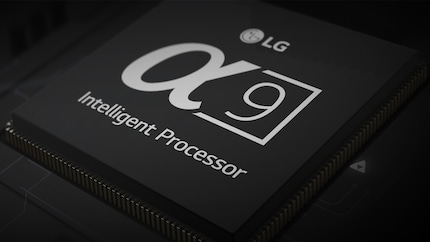
LG wants to follow suit with the Alpha 9. According to official sources, the new processor goes through a four-stage process for noise reduction. For context, there used to only be two stages. It also makes the images clearer, and a new algorithm reduces image artefacts and makes contours sharper. On top of that, it’s said to have improved colour rendition, which you notice now in source material with quality below that of Ultra HD, such as normal live TV transmissions or Blu-ray.
You see, a good processor enhances any material that isn’t UHD quality. And that sometimes happens. This is why the processor is at least as important as the screen itself.
HFR – high frame rate
The Alpha 9 has another advantage: high frame rate (HFR). In cinema, one film second is usually made up of 24 single images, known as frames. Because the human eye can’t set each of 24 frames per second apart, it sees it all as one continuous movement.
A high frame rate is when the number of frames or images per second exceeds the customary 24. This makes smooth movements look even smoother. It should mean there is less smearing and choppiness in fast action scenes and sports programmes. Take Peter Jackson’s «Hobbit» saga, for example, which was filmed with 48 images per second.
The Alpha 9 exceeds 48 frames per second (FPS). According to LG, it should be able to handle content with a frame rate of around 120 FPS. Moreover, it automatically makes non-HFR content high. Unless you don’t like the HFR effect, that is, and in which case you can just turn off this setting. Some of LG’s rival disparagingly labelled it the soap effect because that’s what Brazilian soap operas look like.
Artificial intelligence in your TV
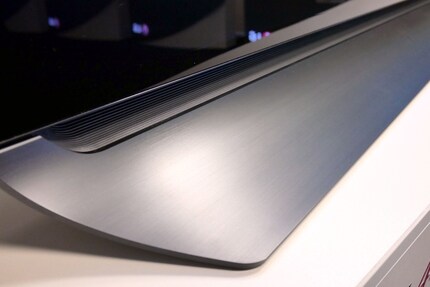
Samsung set the smart TV bar with its smart home concept and now LG is following suit. Thanks to Google Assistant integration, artificial intelligence should help in a number of ways, especially in controlling the TV via voice commands. Let me give you an example:
«Volume up»
That’s the LG voice command for adjusting the volume. Express it any other way and nothing will happen. LG wants to change that with «ThinQ AI».
The telly should understand «please turn the volume up a bit» just as easily as «hey, I can hardly hear anything here. Give it some welly!»
Artificial intelligence analyses your command and responds accordingly. The bad news is it won’t be ready in time for the launch of Swiss sales. And it could be another five or six months before you’re sweet-talking your TV into recording your favourite cookery programme despite the fact you’re on a diet.
Forecast – what does the future hold for LG and OLED?
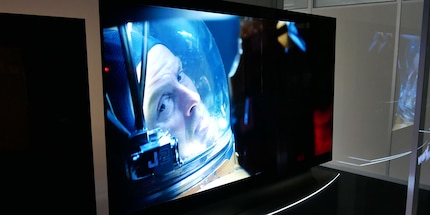
Five years ago the battle for the OLED market seemed to be a two-horse race between LG Display, a subsidiary of LG Electronics, and Samsung. But then Samsung backed out. They didn’t reckon the technology would become established, as the organic light-emitting diodes were quick to lose brightness and in any case, they considered them too expensive for the mass market.
Fast-forward to today and the OLED market is the fastest growing area of the TV industry. And possibly also the most lucrative. That’s down to the fact all the manufacturers who offer OLED TVs get their panels – in other words, the screen itself without image electronics and casing – from LG Display. The South Koreans didn’t even consider throwing in the towel and giving up on their research and development.
Technology has them to thank. OLEDs are now supposed to have a lifetime of at least five years, and depending on use, they can last twice as long. It’s hard to give definitive figures as lifetime depends a lot on viewing habits, unless there’s a distinct loss of brightness.
In terms of price, organic diode technology is increasingly coming in line with LCD technology. Obviously, OLEDs are always likely to be at the higher end of that price segment. After all, we are talking about high-end products. But still…
And then it came time for me to make a decision
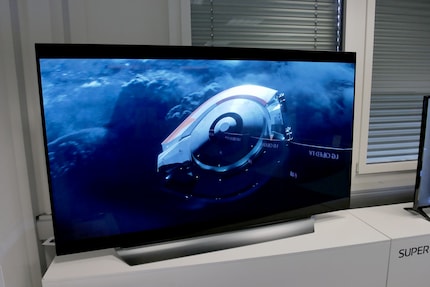
I cast another glance at the 77-inch monster that goes by the name of C8V. For a brief moment, I let myself envision it in my living room and then rejected the thought almost as soon as it entered my head.
«Hmpf,» I grunt. «It’s too big.»
The LG rep who’s showing me round today asks where my sudden outburst has come from. I explain and he can’t help but crack a smile.
«Two years ago, 55-inch TVs were considered monsters,» he says, «but nowadays the 65-inch ones are our bestsellers. The higher the screen resolution, the bigger the television will be.»
I ponder that idea and think back to how I once described big TVs. In my mind’s eye, I try to picture my living room – while doing a little sum in my head.
And with that I’d come to a decision.
«Can I take it with me?»
I write about technology as if it were cinema, and about films as if they were real life. Between bits and blockbusters, I’m after stories that move people, not just generate clicks. And yes – sometimes I listen to film scores louder than I probably should.
From the latest iPhone to the return of 80s fashion. The editorial team will help you make sense of it all.
Show all
